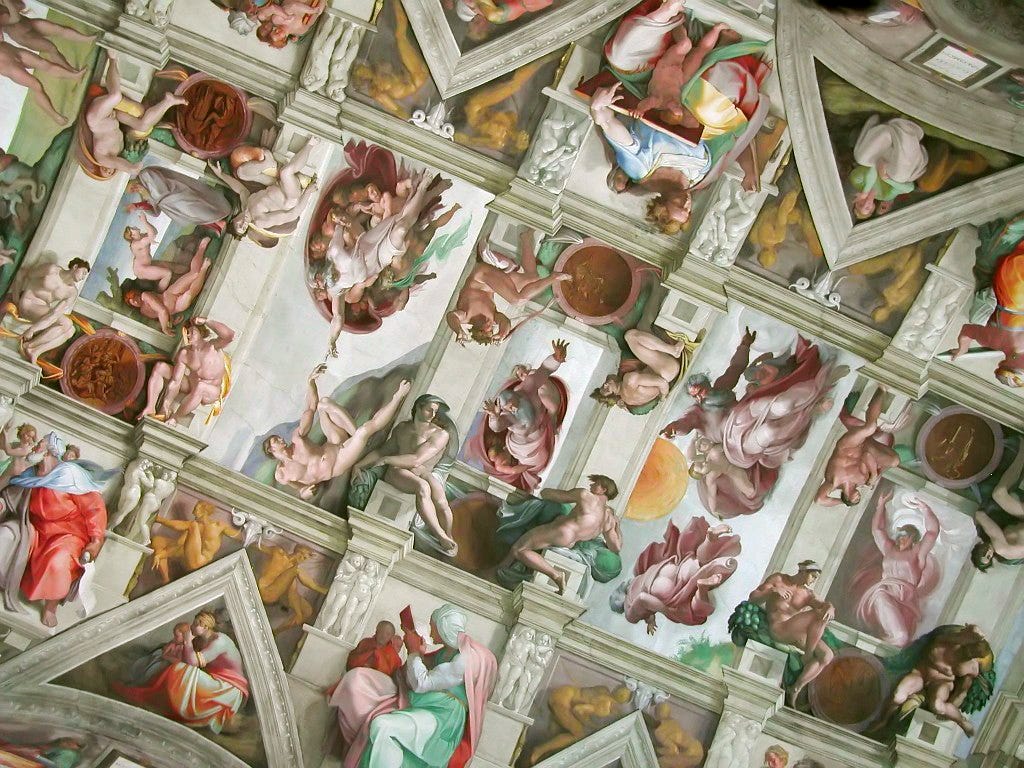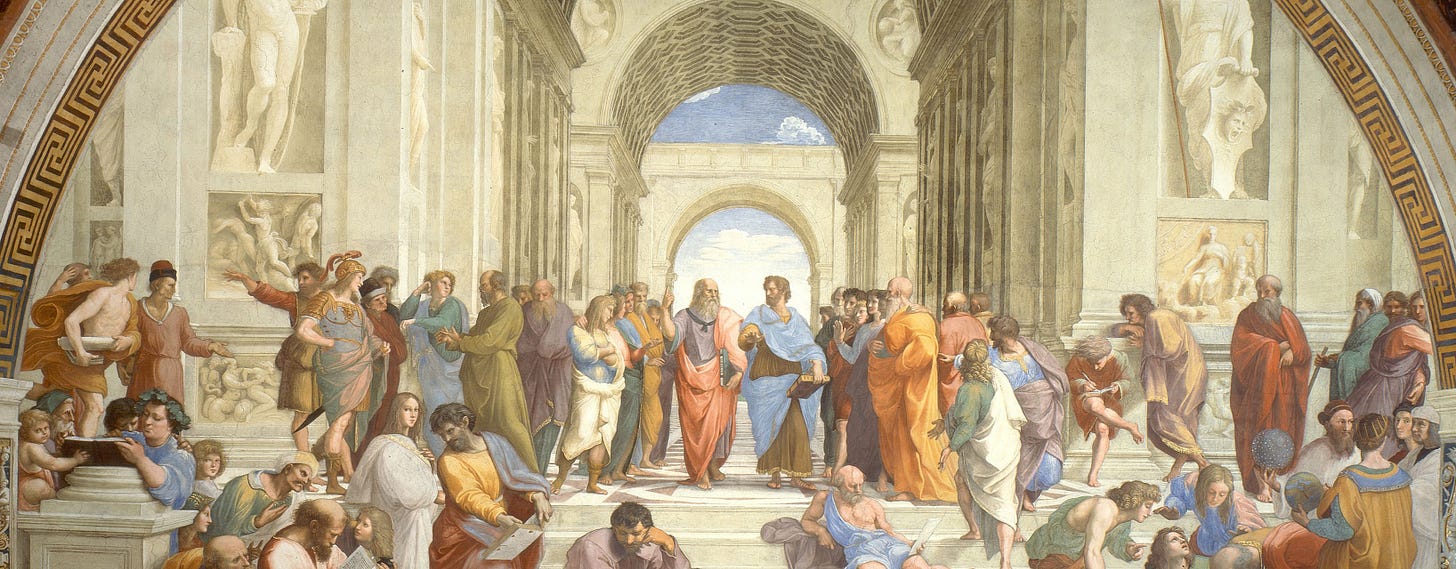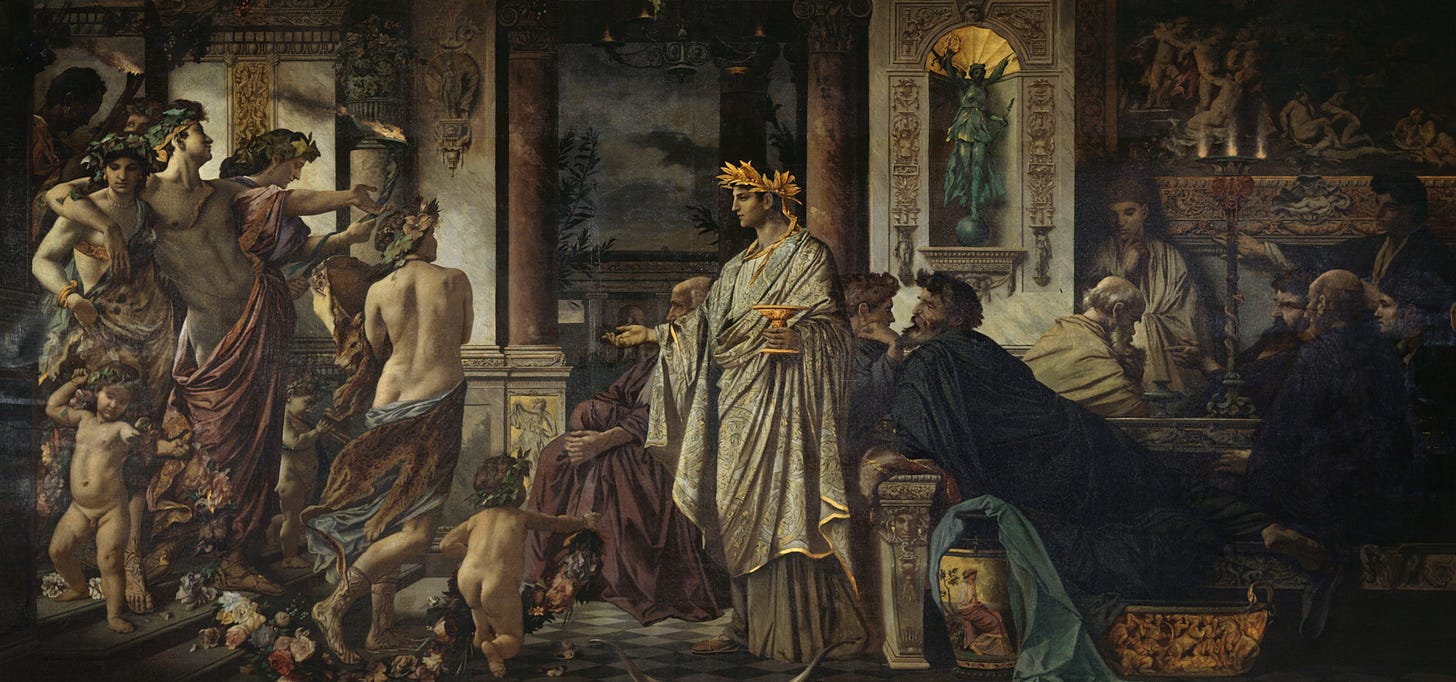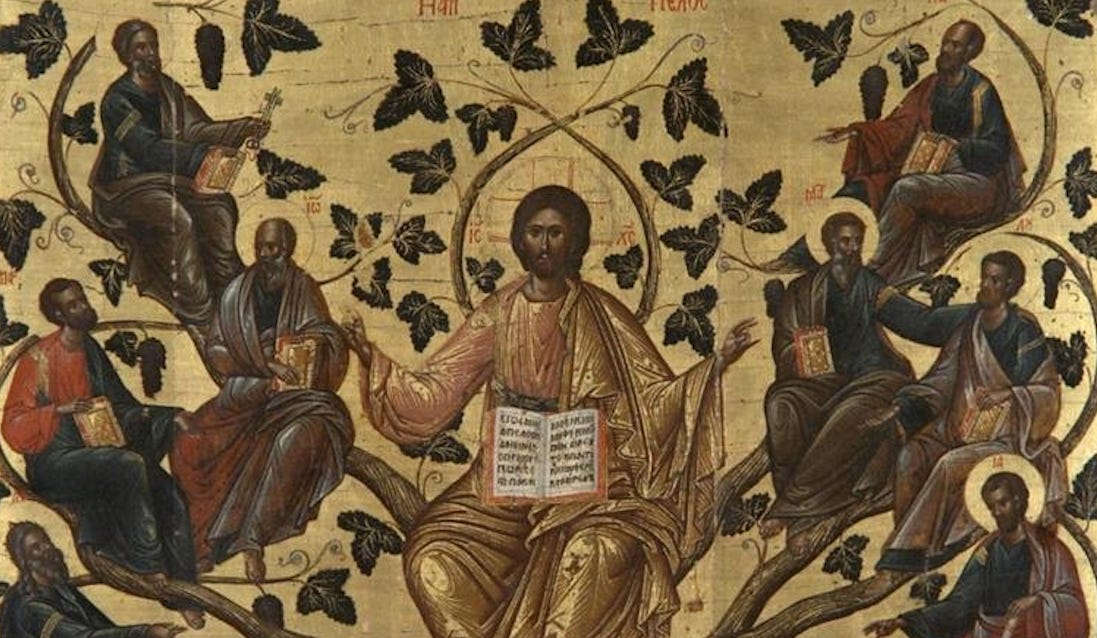Why Christian Education Needs Paganism
Paganism Calls the Christian Soul to Ascend Higher
What is Christian education? You may think of memorizing bible verses or saccharine narratives about Noah’s ark—but according to one Early Church Father, Christian education, especially for young men, must include classical pagan literature.
Today, many Christians would think Homer, at best, has nothing to do with the faith, and at worst would see Homer, Hesiod, or Plato as threats to the Christian imagination.
But what is Christian education, exactly? And what is the role of classical paganism?
The answer to this question reveals that pagan virtue is not a threat to Christianity—but rather it is an invitation for your soul to soar to even higher levels of excellence.
Reminder: you can support our mission and get all our members-only content for just a few dollars per month:
New, full-length articles every Tuesday and Friday
The entire archive of members-only essays
Access to our paid subscriber chat room
A Lesson from the Early Church
In the 4th century, the great Cappadocian church father St. Basil penned an incredibly important letter for understanding Christian education: an “Address to Young Men on the Right Use of Greek Literature.” In it, he shared a familiar Christian analogue of the soul but with a new insight.
He taught your soul is like a branch. When you read Holy Scripture, the branch bears fruit; yet, when you read the classical pagans, the branch bears its leaves.
This is St. Basil’s fundamental insight—that the classical pagans will help prepare the soul for the Gospel. It is an amazing claim.
St. Basil understands the purpose of Christian education is the imitation of Christ—to mature until the soul becomes beautiful as Christ is beautiful.
And what makes the soul beautiful? Virtue—and the pagans, for St. Basil, play an important role.
Natural Virtue: The Call to Excellence
Classical pagans, as St. Basil observes, can be great examples of natural virtue. The natural virtues (or cardinal virtues) are prudence, justice, temperance, and fortitude.
They are “natural” because they’re available to all mankind by nature—regardless if you are a Christian, atheist, or Muslim. Christians hold that all humans share in the same nature and have the same type of soul; thus, the all persons can work to make their souls healthier and more beautiful via the same virtues, the natural virtues.
In contrast, the supernatural (or theological) virtues of faith, hope, and charity only come by participating in the grace of God. Whereas the natural virtues can be cultivated in mankind by nature, the supernatural virtues are a gift given by God to those who participate in his divine life, Christians.
For St. Basil, the classical pagans, however, are not to be discarded because they lack grace, but rather studied to see how well they excel by nature.
St. Basil, for example, praises Odysseus for the times he showed virtue in the Odyssey. In fact, he claims that “all the poetry of Homer is a praise of virtue.” One may also think of the piety of Hector in the Iliad or raw spiritedness (thumos) so often displayed in Plutarch’s Parallel Lives. St. Basil also praises Socrates for turning the other cheek, a surprising antecedent to Christian teaching.
So, what is the relationship between grace and nature? Are they combative or mutually exclusive? No—both are given by God. Grace perfects nature. It both heals and elevates it. As such, St. Basil invites Christians to contemplate the best of natural virtue amongst the pagans.
To wit, if these pagans can achieve such natural greatness, how much more could Christians achieve greatness with God’s grace?
As St. Basil notes: “One who has been instructed in the pagan examples will no longer hold the Christian precepts impracticable.” Christian education, for St. Basil, shows the student the human excellence of the pagans as an invitation for the Christian soul to ascend even higher.
For these pagan examples, like Hector in the Iliad, wield a tremendous amount of memetic power over the young—especially young men. St. Basil notes “the lessons of youth make a deep impression,” and allowing the virtuous pagans to make such an impression will prepare them for the Gospel.
Pagan virtue is not a threat to Christianity—no more than nature can be a threat to grace; rather, the natural excellence amongst the virtuous pagans is an invitation for the Christian to soar even higher toward the divine.
The Danger of the Virtuous Pagans
But is there not a great danger for the Christian imagination in reading the pagans?
Odysseus has many laudable qualities—but he also falls short of natural virtue on many occasions. Plato and Aristotle were brilliant, but neither are perfect in their understanding of nature. In other words, the virtuous pagans are always intermixed with moral and intellectual shortcomings.
Would it not be better to simply study Scripture and leave the pagans alone?
St. Basil is aware of this danger. When you read the pagans, he says you should be like a bee who discriminates amongst the flowers. You draw from what is good—whatever, as St. Basil notes, praises virtue and condemns vice—and refrain from what is evil.
But Christians who are leery of the shortcomings of the virtuous pagans should recall the shortcomings of Noah, Abraham, Moses, and David. Like Hector or Odysseus, these characters must be first understood for who they are and secondly read through the lens of Jesus Christ—the Truth.
Bear Your Leaves to Bear Fruit
St. Basil’s advice to young Christian men is as prescient now as it was in the Roman Empire. As he notes, Moses “severely trained his mind in the learning of the Egyptians,” and Daniel “studied the lore of the Chaldeans while in Babylon.” Holy men have always benefited from pagan learning.
You can look to Homer, Plato, and other virtuous pagans not as stumbling blocks but as catalysts to help your soul ascend to the even greater heights of Christian virtue and wisdom.
Grace perfects nature. Christianity perfects paganism.
Read the virtuous pagans! And allow your soul to bear the leaves it needs to bear the rich fruit of grace.
PS
Follow the advice of St. Basil are read the pagans! If you are new to the virtuous pagans, it is not a problem. Check out these introductions on Ascend: The Great Books Podcast: How to Read the Great Books Well, Introduction to Homer, and Introduction to Plato.
Dcn. Harrison Garlick is a deacon, husband, father, Chancellor, and attorney. He lives in rural Oklahoma with his wife and five children. He is also the host of Ascend: The Great Books Podcast. Follow him on X at Dcn. Garlick or Ascend.







There's a term for this in the Bible.
Plundering the Egyptians means discerning what is true, good, or beautiful in non-Christian culture and bringing it into Christian life.
Like the Israelites taking treasures from Egypt, believers can reclaim wisdom, art, and virtue from the non-Christian world - including much of modern culture.
Indeed, pagans aka heathens have several millennia worth of knowledge to share. Either the good things to follow and the bad things to learn from them. Thank you, as always, for expanding my knowledge.